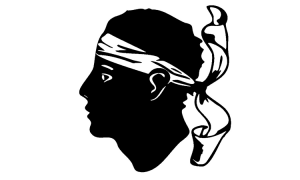Language/Corsican/Grammar/Future-Tense
Hi Corsican learners! 😊
In this lesson, we will learn about the future tense in Corsican. The future tense is used to describe an action that will happen in the future.
Don't miss the chance to check out these pages as you wrap up this lesson: Personal pronouns & How to Use Be.
Formation[edit | edit source]
The future tense in Corsican is formed by taking the infinitive of the verb and adding the appropriate ending depending on the subject. The endings are as follows:
| Subject | Ending |
|---|---|
| Io (I) | -erò |
| Tu (You singular) | -arai |
| Elle/Lui (She/He) | -erà |
| Noi (We) | -eremu |
| Voi (You plural) | -erete |
| Elle/Loro (They) | -eranu |
For example, let's take the verb manghjà (to eat):
| Corsican | Pronunciation | English |
|---|---|---|
| Manghjàerò | /maŋ'dʒaerɔ/ | I will eat |
| Manghjàarai | /maŋ'dʒaaraɪ/ | You will eat |
| Manghjàerà | /maŋ'dʒaera/ | She/He will eat |
| Manghjàeremu | /maŋ'dʒaerəmu/ | We will eat |
| Manghjàerete | /maŋ'dʒaerete/ | You all will eat |
| Manghjàeranu | /maŋ'dʒaeranu/ | They will eat |
Usage[edit | edit source]
The future tense in Corsican is used to express a future event. For example:
- Dumane, a manghjàeru pizza. (Tomorrow, I will eat pizza.)
- U scopu sarà di spostassi à Parigi à ferraghju. (The goal is to go to Paris in February.)
- À venda sera fattu à lugliu. (The sale will be made in July.)
The future tense can also be used to express a polite request, similar to using "would" in English. For example:
- Pudèrieri dumandassi una questione? (Could I ask a question?)
- Ci pudete dà una manu, per piacè? (Could you give us a hand, please?)
Irregular Verbs[edit | edit source]
There are a few irregular verbs in the future tense. Here are some examples:
- Avere (to have): avrò, avrai, avrà, avremu, avrete, avranu
- Essere (to be): sarò, sarai, sarà, saremu, sarete, sarannu
- Potè (can): porrò, porrai, porrà, porremu, porrete, porrannu
Dialogue[edit | edit source]
Let's look at a dialogue involving the future tense:
- Person 1: Dumane, ci sarè u soli. (Tomorrow, it will be sunny.)
- Person 2: Eccu! Allora si po andà à u mare! (Great! Then we can go to the beach!)
- Person 1: Esattu! U mare sarà bellu. (Exactly! The sea will be beautiful.)
- Person 2: Poi, andremu à manghjà una pizza a Nutiziale? (Then, can we go eat pizza in Nutiziale?)
- Person 1: Sì, ci andarèmu dopu. (Yes, we'll go there after.)
Cultural Notes[edit | edit source]
Corsican is a Romance language that is spoken on the island of Corsica, which is located southeast of France and north of Italy. It is closely related to Italian and is influenced by French. The language has a rich history and is an important part of Corsican culture. Corsican language and culture are celebrated through music, literature, and festivals.
One of the most important Corsican festivals is the Fiera di u Vinu, which is a wine festival that takes place in September. Visitors from all over come to taste the local wine and enjoy traditional Corsican music and dancing. Corsican cuisine is also a huge part of the culture, with dishes like figatellu (a type of sausage), pulenda (a cornmeal cake), and fiadone (a type of cheesecake).
To improve your Corsican Grammar, you can also use the Polyglot Club website. Find native speakers and ask them any questions!
Sources[edit | edit source]
Other Lessons[edit | edit source]
- Personal pronouns
- Pronouns
- Adjectives
- Negation
- Plurals
- How to Use Be
- Questions
- Conditional Mood
- Give your Opinion

